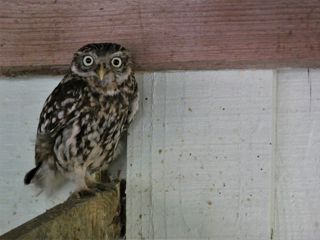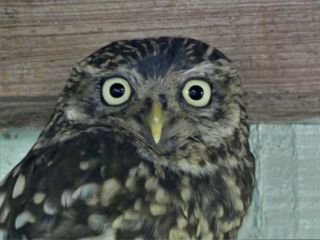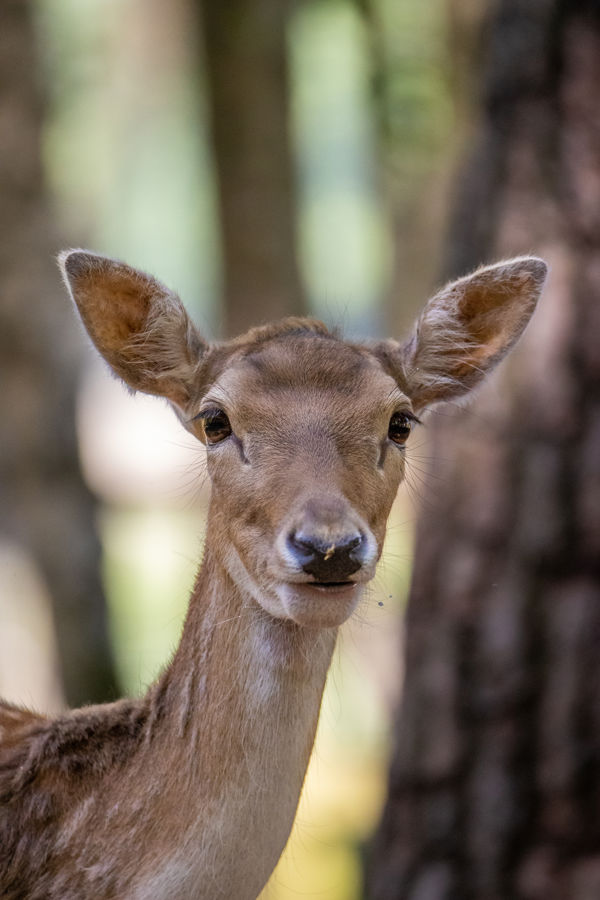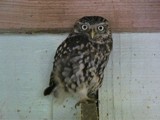Little Owl

General information
As their name suggests, Little Owls are small in size standing at around 20 cm tall. Their plumage is a grey brown speckled with white, and they have bright yellow eyes. Little Owls are crepuscular hunters finding their small prey at dawn and dusk. Often they can be seen sitting on fences or branches with a distinctive head bobbing action. Unlike other owls, they are known to eat plant material and berries as well as small birds, mammals and insects.
Little Owls were introduced into the UK in the 19th century and are now listed as a native species. Although they are not globally threatened, numbers in Europe have been decreasing over recent years. The reason is as yet unknown but thought to be due to intensive farming methods.

Latin name - Athene noctua
Class - Aves
Order - Strigiformes
Family - Strigidae
IUCN Status - Least concern
Habitat - Open land with trees and bushes, parks, pastures,steppes, semi-deserts
Distribution - W.Europe, North Africa, Middle East, Central Asia, to China and Manchuria
Average Lifespan
3 years in the wild. 10 years in captivity.
Threats
Intensive farming methods
Fun Fact
The Little Owl is often associated with the Greek goddess of wisdom, Athena. Due to different countries' mythologies connecting the owl with wisdom, we now have the saying ‘Wise as an owl’ but they really are not all that wise!
Our Residents
The Little Owl pair, Nelson and Nellie, hatched two eggs in May 2020 and are currently living as a 'parliament' family group in the Barn Aviary just by the smaller play area/Gift Shop.

Sign up to our newsletter
Join our mailing list in order to keep up to date with park news and special offers.




